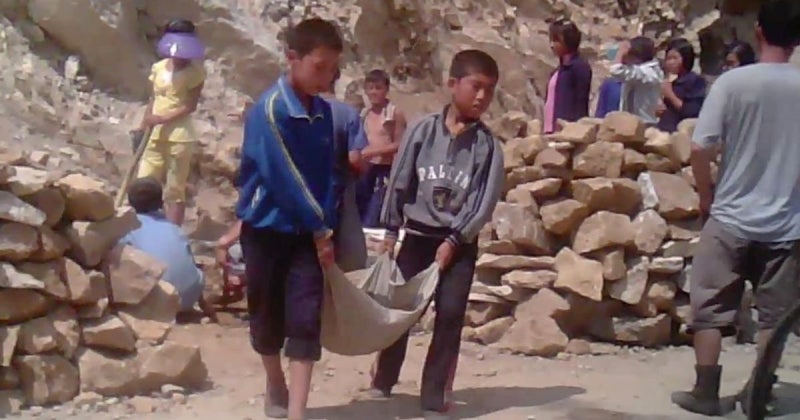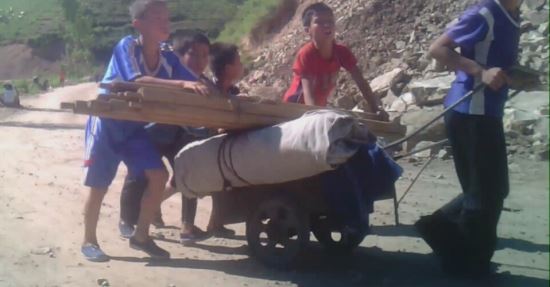North Korea actively promoting Childcare Law
(2022) as a “model example of human rights
protection” on the international stage
Bella Seo (North Korean Defector, University Student)

North Korea has been actively promoting its Childcare Law (2022) as a “model example of human rights protection” on the international stage. The state-run newspaper Rodong Sinmun claims that “childcare benefits are available even in remote mountainous areas,” portraying North Korea as a nation that respects children’s human rights. However, behind this propaganda lies a harsh reality of systematic human rights violations.
Firsthand Experience of North Korea’s Education System
I was born in North Korea and lived there for 15 years before defecting and settling in South Korea, where I have now lived for nine years. My experience as a student in North Korea was far from the idyllic image presented by the regime.
North Korean schools impose financial burdens on students and their families. Costs such as maintenance fees, facility upkeep, and even teachers’ salaries fall directly on students. Those unable to pay are subjected to corporal punishment and classroom bullying. Teachers forcibly collect these fees, and students who fail to comply face public humiliation. This financial strain often leads parents to struggle, and many students drop out of school to escape the humiliation and pressure.
Corporal Punishment: A Daily Reality
In North Korean schools, violence and corporal punishment are commonplace. If a student cannot pay the imposed fees, teachers beat them with sticks, striking their hands, buttocks, thighs, and calves. These acts of violence inflict both physical and psychological trauma, amounting to child abuse. However, in North Korea, child abuse is neither recognized nor condemned. Violence against children is widely accepted as a natural part of life.
Forced Labor Over Education
Instead of studying, North Korean students spend much of their time engaged in forced labor. Schools routinely deploy students for disaster recovery, farming, and scrap metal collection. During study hours, they are forced to work rather than learn. Brainwashed by repetitive ideological education, I never questioned this mobilization. However, after arriving in South Korea, I realized that schools should be institutions of learning, not labor camps. Depriving students of education through forced labor is a grave human rights violation.

North Korea: A Nation Stuck in the Past
More than 70 years have passed since the division of the Korean Peninsula. While South Korea has developed rapidly, North Korea remains trapped in the past. In an era where AI and digital technology are transforming societies, North Korea blocks internet access and isolates its people from the outside world. Citizens cannot travel freely even within the country. Criticizing Kim Jong Un results in execution or imprisonment in political camps, with entire families facing brutal reprisals.
The Urgent Need for International Attention
North Korea continues to deceive the world with false narratives of human rights protection while violating its citizens’ fundamental freedoms. Students who want to study are forced to drop out due to financial hardship and are subjected to forced labor.
I strongly urge the international community to continue monitoring North Korea’s human rights violations. Global efforts must be made to ensure that North Korean children receive education without fear, abuse, or forced labor. Only with sustained international pressure can the voices of North Korea’s oppressed students be heard and their futures secured.






















